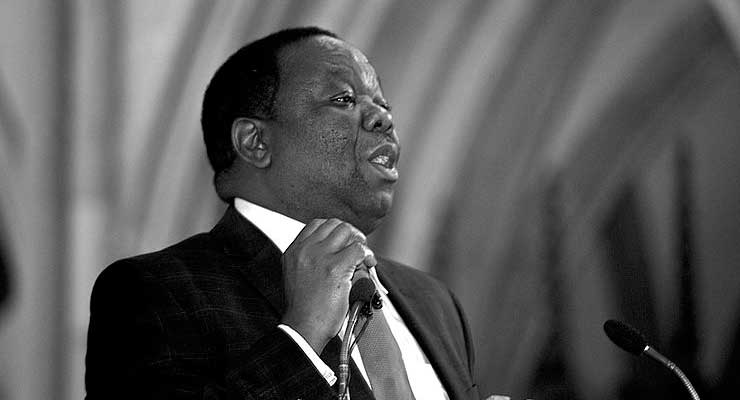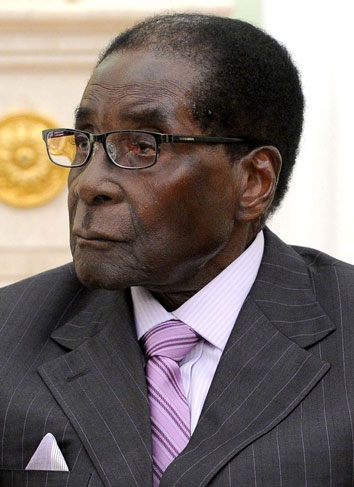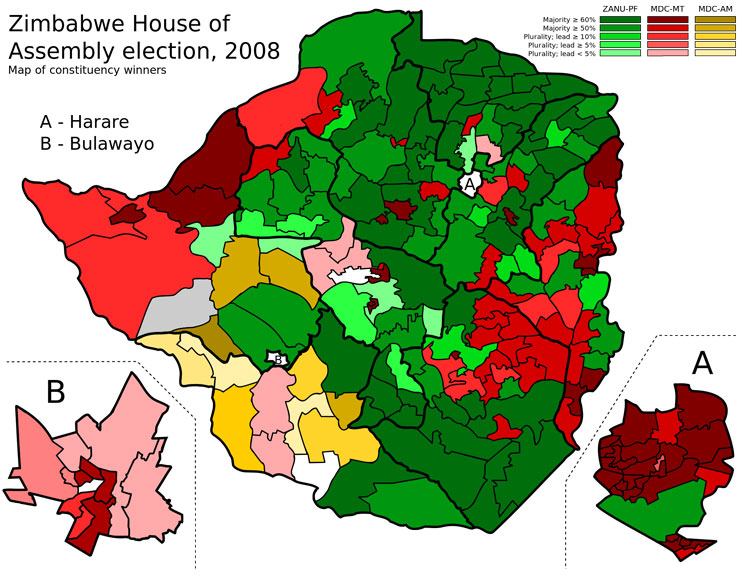
The inevitability of the 2018 harmonized elections dominating public discourse essentially means that the opposition parties have to find a common ground in terms of forging strategic alliances.
In regards to electoral reforms, some of the opposition parties numbering up to 17 were able to mobilize themselves under the banner National Electoral Reform Agenda (NERA). Together with the other parties they hold monthly meetings with the Zimbabwe Electoral Commission (Zec) to deliberate on issues of concern.
However, heightened political temperate within the opposition parties may derail this progress and further affect any prospects of a rainbow alliance which may have the ability to upstage President Robert Mugabe (93) ruling Zanu PF party in power since 1980.

The main opposition Movement for Democratic Change (MDC-T) led by Mr. Morgan Tsvangirai has suffered about three splits since 2005. First offshoot of MDC was the then MDC-M was led by Professor Arthur Mutambara but is now led by Professor Welshman Ncube (notice that the T and M at the end of MDC denotes the surname of the leader to avoid confusion since there are using the same name). In early 2014 another split rocked MDC-T were the then Secretary-General Tedai Biti and then Deputy Treasurer Elton Mangoma left to form the then MDC Renewal Team which was to be short lived as Biti and Mangoma were to go separate ways to form their own respective parties.
More recently, Zimbabwe People First (ZimPF) formed mainly by members who had been fired from Zanu PF on allegations of plotting to ouster Mugabe from power in 2014 joined the band wagon of fragmented opposition marred with power struggles rather than canvassing for votes from the electorate.
Former Vice- President Joyce Mujuru last month dismissed seven senior members who included Didymus Mutasa and Rugare Gumbo for allegations of working in cohorts with the ruling Zanu PF to undermine ZimPF. In turn they fired Joyce Mujuru from the party further complicating the whole issue.
However, last week Joyce Mujuru faction changed its name to National People’s Party (NPP) thereby leaving the name ZimPF for the Mutasa and Gumbo led faction. This route is meant to avoid engaging into a brutal political and legal war over who is in charge of both the party and its assets.
Although Zanu PF is also deeply divided over Mugabe’s succession, with a faction of young party stewards going by the moniker Generation 40 (G40) which is vigorously opposed to Vice- President Emmerson Mnangangwa succeeding the nonagerian squaring against Mnangangwa’s allies nicknamed Team Lacoste. The party is well-known for rebuilding and uniting on the 11th hour when corned by a common enemy.
A recent report by Afrobarometer conducted in Zimbabwe, Namibia, Mozambique and South Africa revealed that ruling parties command 46 percent electorate trust as opposed to 35 percent for the opposition parties.
This report puts a huge burden on the opposition camp that has to stop with their incessant squabbling and instead focus on setting up a strong coalition that has the capacity to dislodge Mugabe’s Zanu PF. This move will not only herald the rebuilding of the divided opposition camp, it will also set to shake down Zanu PF to its core. l suggest that a strategic alliance under one presidential candidate and vigorous campaigning in Zanu PF strongholds may bring desired results for the opposition.

Thulasizwe says
What has been the Experience for a Divided Zimbabwe
Many people speculate about the fact that Robert Mugabe’s Zanu PF government is driving most Zimbabwean Citizens into poverty and they say that a new political economic alternative is needed in Zimbabwe inorder to shape the current system, more recently, “Zimbabwe People First (ZimPF) formed mainly by members who had been fired from Zanu PF on allegations of plotting to ouster Mugabe from power in 2014”. (see Chirimumimba. F,p1)
Political leaders create all kinds of disinformation because they are against the non-capitalist exploitation of colonised people.
As Hanlon. J, Manjengwa. J, and Smart. T, 2013, Lamented, “Business leaders use political links to bend rules and even break laws to increase their profits”. And its goes further to say, and in a globalized world of conspicuous consumption, some business oligarchs, political leaders, and senior military officials aspire to the standard of the global super-rich”. (p.26)